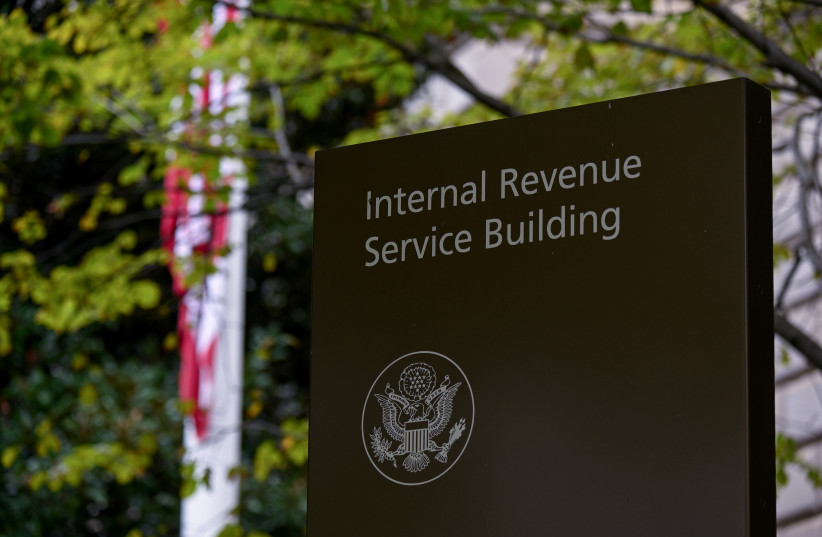Apocalypse? IRS says you still need to pay taxes – explainer

Let’s say it’s the end of the world. It doesn’t matter how.
Maybe the Russia-Ukraine War finally went nuclear and the Earth has turned into a radioactive wasteland. Maybe climate change has caused a series of weather disasters that has ended society as we know it. Maybe both happened – the Doomsday Clock certainly indicated both are possible. Or maybe it’s the Christian rapture or the arrival of the Jewish Messiah.
But what matters is that if you thought the apocalypse would exempt you from paying taxes, the US Internal Revenue Service (IRS) has some bad news for you. Because not even the literal end of the world will stop them from taking your taxes.
Yes, it’s true. The IRS has an apocalypse plan, and they will make sure everyone – assuming they are a US citizen who doesn’t make use of the normal ways of legally avoiding paying taxes – pays in the end.
So does that mean the plot of the next Fallout game will be about an IRS agent in a nuclear wasteland US collecting taxes from everyone left? Maybe (Bethesda, let’s talk).

So with US tax season around the corner, let’s talk about how the IRS will keep taxing come doomsday.
Called the Continuity/Cooperations Plan, this was first published in 1980s but has been continuously updated.
This enormous document describes a plan for how, in case of an apocalyptic scenario, the IRS can resume tax collection in just 12 hours.
Yes, it will be that quick.
The plan focuses on three tiers of continuity.
- MEFs (mission essential function, meaning a type of job at the IRS deemed essential) and ESAs (essential supporting activity, which need to happen to support MEFs)
- BPPs (business process priority, which are considered important but not essential)
- DPBs (deferred business priority)
Sound confusing? It should, and it’s only the start of the many acronyms in this document.
MEFs are IRS jobs that are essential and must be up and running within 12 hours of an apocalypse, which includes dealing with tax returns, tax remittances and tax refunds.
ESAs refer to the support network needed for the MEFs, like IT service, physical security, payroll and human resources.
BPPs include functions like taxpayer assistance and compliance activities.
DPBs are things that may be important but aren’t necessarily supporting an MEF or don’t have deadlines, but are rather discretionary. In other words, these might not be up and running for a while.
But who’s going to be in charge?
The current person in charge of the IRS is the acting commissioner, Doug O’Donnell at the time of writing. But will he still be at the helm come doomsday?
This will be a number of local community representatives (LCRs), as part of the continuity community, which will also include with members of the emergency response team.
The LCR will be aided by the senior management team, which will help provide the LCR with logistical, managerial and administrative guidance.
The senior management team itself is something continuously updated with each member’s name, position and full contact information listed in the COOP roster for IRS members.
There will be a bunch of different teams available to be in charge of general leadership, which in turn serve as part of the line of succession should the previous teams be compromised, possibly by whatever apocalyptic disaster has unfolded.
Likewise, there will also be several different relocation facilities, where the leadership team can be located depending on the day.
Now that’s fine and all but what about the actual taxes?
Back in the 1980s, there was a proposed general sales tax that would act as a stand-by tax program to encourage savings and help rebuild the US capital stock.
All of this would be made possible by the established network described in the long document to make sure IRS agents have the support and tools needed to keep collecting taxes.
But what about actual money?
The IRS has actually made plans for this too. As documented in Garret M Graff’s book Raven Rock: The Story of the US Government’s Secret Plan to Save Itself – While the Rest of Us Die, the Federal Reserve has around $2 billion stored away at a bunker in Mount Pony, Virginia. This is supposed to last 18 months to keep the economy going, as after 18 months they should have mints printing hard currency again.
Supposedly much of this $2 billion is in the form of $2 bills.
So does this IRS apocalypse plan cover everything?
Surprisingly, no.
As noted by Arizona State University’s Prof. Adam Chodorow, there is an apocalyptic scenario that can pose considerable problems when it comes to taxes.
This refers, naturally, to a zombie apocalypse.
Now, logistically, the IRS’s plan for collecting taxes after the apocalypse would still apply here. The problem is with the very nature of a zombie apocalypse, in that it isn’t clear if zombies would need to be taxed or not.
Chodorow’s 2017 paper noted, there is “a glaring gap in the academic literature” regarding how “estate and income tax laws apply to the undead.”
And of course, this wouldn’t just refer to zombies. It could also apply to ghosts or vampires or any other form of the undead. Would it apply to clones? Unclear.
But should we really be taking the idea of a zombie apocalypse seriously?
Yes.
While the IRS may not have plans in place for a zombie apocalypse, the US Centers for Disease Control and Prevention (CDC) does, with its guidance having been released in 2016. Not only that, but the US military also has contingency plans for a zombie apocalypse.
So if the CDC and military can plan for it, why can’t the IRS?
This raises an interesting question of whether zombies would be counted as people. Besides, if a zombie apocalypse did happen, what if people tried to become a zombie intentionally to avoid paying taxes? Though that would also probably depend on the kind of zombification we’re dealing with.
But do you know what else the IRS contingency plan wasn’t prepared for? COVID.

Indeed, throughout the COVID-19 pandemic, the IRS had a major backlog of tax returns and a high inventory of unprocessed returns.
As noted by the Government Accountability Office (GAO), the IRS had a backlog of around 10.5 million paper returns and returns stopped for errors at the end of 2021.
This is part of some ongoing issues the IRS had as well as with how just unprepared the US bureaucratic infrastructure was for the COVID pandemic.
And if plans recently pushed by Republicans in Congress ever come to fruition, the IRS itself may face its own personal apocalypse, defunded and eventually abolished as the GOP restructures the US tax system.